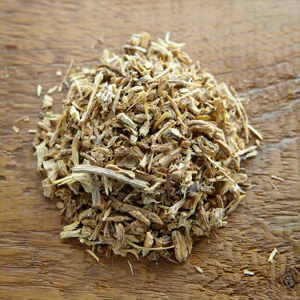Eleuthero is commonly called Siberian ginseng. Additional names include: Acanthopanax Obovatus, Acanthopanax Obovatus Hoo, Acanthopanax senticosus, Buisson du Diable, Ci Wu Jia, Ciwujia, Ciwujia Root, Ciwujia Root Extract, Devil's Bush, Devil's Shrub, Éleuthéro, Eleuthero Extract, Eleuthero Ginseng, Eleuthero Root, Eleutherococci Radix, Eleutherococcus senticosus, Éleuthérocoque, Ginseng de Sibérie, Ginseng des Russes, Ginseng Root, Ginseng Siberiano, Ginseng Sibérien, Hedera senticosa, North Wu Jia Pi, Phytoestrogen, Plante Secrète des Russes, Poivre Sauvage, Prickly Eleutherococcus, Racine d’Eleuthérocoque, Racine de Ginseng, Racine Russe, Russian Root, Shigoka, Siberian Eleuthero, Siberian Ginseng, Thorny Bearer of Free Berries, Touch-Me-Not, Untouchable, Ussuri, Ussurian Thorny Pepperbrush, Wild Pepper, Wu Jia Pi, Wu-jia(1).
Siberian ginseng (SG) can supposedly strengthen the body and increase general resistance to daily stress, and is referred to with the non-medical term “adaptogen.” It has been used for conditions of the heart and blood vessels such as high blood pressure, low blood pressure, hardening of the arteries (atherosclerosis), rheumatic heart disease, kidney disease, Alzheimer’s disease, attention deficit-hyperactivity disorder (ADHD), chronic fatigue syndrome, diabetes, fibromyalgia, rheumatoid arthritis, flu, colds, chronic bronchitis, tuberculosis, and treating the side effects of cancerchemotherapy. It has been used to treat insomnia, infections caused by herpes simplex type(2), and to boss the immune system, prevent colds, and increase appetite. It is also an additive in skin care products(1).
SG contains triterpene saponins, which are chemically distinct from American and Asian ginseng, and known as eleutherosides; lignans such as syringaresinol; coumarins; and polysaccharides. Studies showed “significant” effect in a subset of subjects with mild-to-moderate fatigue, but not the entire test group. In another study, SG reduced total and LDL cholesterol, triglycerides and glucose in healthy human volunteers, and has been proposed as a potential agent for preventing type II diabetes(2), (4).
Skin is maintained by epidermal stem cells that self-renew, proliferate, and differentiate. Therefore, skin aging is induced by impaired stem cell mobilization or by a reduction in the number of stem cells that can respond to proliferative signals. Self-renewal of stem cells is controlled intrinsically by gene expression and it is modulated through interaction with extrinsic cues from the environment. Thus, modulation of the stem-cell niche is important for the self-renewal and multipotency of stem cells. SG extract has antioxidant activity and PZ is found to be the main ingredient and it has antioxidant activity. It has also been reported that PZ protects skin against UVB-induced skin damage by decreasing ROS overproduction. These findings suggested that Phlorizin (PZ) might have beneficial effects on skin stem cells. PZ has been postulated to be the main antiaging agent in SG and and one study found it increased expression of integrin a6, integrin b1, and type IV collagen and can affect stem cell fate in the skin(3).
Before taking Siberian ginseng, talk with your healthcare provider if you take any medications. This herb interacts with many prescription drugs. Though no contraindications have been reported, high doses should be avoided in patients with uncontrolled hypertension.
General:
1)WebMD. Find a Vitamin or Supplement: Ginseng, Siberian. 2005-2016. http://www.webmd.com/vitamins-supplements/ingredientmono-985-ginseng,%20siberian.aspx?activeingredientid=985&activeingredientname=ginseng,%20siberian
2)Edwards SE, da Costa Rocha I, Williamson EM, Heinrich M. Ginseng, Siberian Eleutherococcus senticosus (Rupr. & Maxim.) Maxim. Phytopharmacy: An Evidence-Based Guide to Herbal Medicinal Products. 2015 Feb 17:177-179.
Schmidt M, Thomsen M, Kelber O, Kraft K. Myths and facts in herbal medicines: Eleutherococcus senticosus (Siberian ginseng) and its contraindication in hypertensive patients. http://www.academia.edu/download/46342062/BTAT-60734-myths-and-facts-in-herbal-medicines--eleutherococcus-sentico_071814.pdf
Skin:
3)Hye-Ryung Choi, Kyung-Mi Nam, Hyun-Sun Lee, et al., “Phlorizin, an Active Ingredient of Eleutherococcus senticosus, Increases Proliferative Potential of Keratinocytes with Inhibition of MiR135b and Increased Expression of Type IV Collagen,” Oxidative Medicine and Cellular Longevity, vol. 2016, Article ID 3859721, 8 pages, 2016. doi:10.1155/2016/3859721 http://downloads.hindawi.com/journals/omcl/2016/3859721.pdf
Diabetes:
4)Freye E, Gleske J. Siberian ginseng results in beneficial effects on glucose metabolism in diabetes type 2 patients: a double blind placebo-controlled study in comparison to Panax Ginseng. International Journal of Clinical Nutrition. 2013 Jan 23;1(1):11-7. http://pubs.sciepub.com/ijcn/1/1/2/
